12 LinkedIn Scheduling Tools for 2024
Tired of the LinkedIn posting hustle? You’re not the only one. Many social media managers struggle with consistent and regular LinkedIn communication. Since LinkedIn isn’t just about LinkedIn company pages,...

It is a common problem for social media teams to become overwhelmed with their workflows. Keeping a pulse on all the new platforms, formats, and algorithm changes is often… exhausting.
The easiest solution for many is either to hire more specialists or take on fewer projects. Both approaches, however, present some business consequences and may not always be feasible or reasonable. Today we’ll show you 13 social media collaboration tools that you can implement for better productivity, more pleasant planning, and hassle-free teamwork. Ready?
What is Kontentino?
Kontentino is a social media management and workflow tool that facilitates team collaboration and client interaction. Contrary to many other solutions for social media management, Kontentino is more than just a simple scheduler for social media platforms.

Collab rating: ⭐⭐⭐⭐⭐
Key 6 social media collaboration features of Kontentino:
Kontentino is especially recommended for:
Asana is a project management tool that marketing teams can use to streamline their tasks.

It enables teams to view overall workload and performance reports for teams, run projects, and assign tasks. While it might be useful for handling big marketing campaigns, it isn’t the best solution for social collaboration.
Don’t get us wrong – we 🧡 Asana at Brainy Bees.
It’s one of the best media collaboration tools out there, but to handle social media accounts, you need a real-deal when it comes to social collaboration tools.
Asana lacks social collaboration features such as direct scheduling to social media profiles.
To get the bigger picture of your 360-degree marketing communication, we recommend using project management tools like Asana but moving the social media collaboration process to a social media management platform like Kontentino.
One of the principles of good collaboration is good communication. As one of the most popular communication platforms, Slack can help social media managers with quick arrangements, brainstorming, and real-time updates.
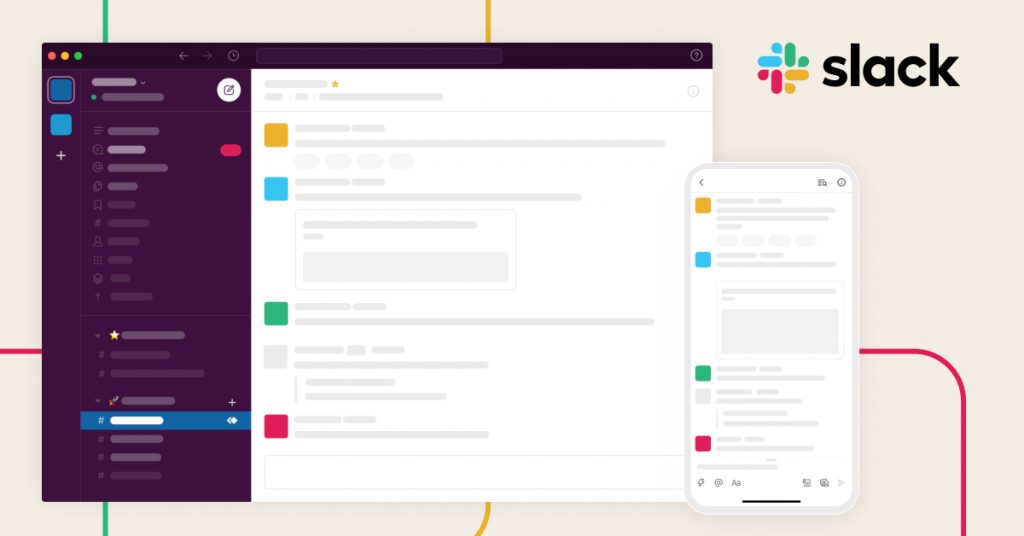
While Slack excels in many areas, it isn’t primarily designed as a task management platform or a traditional social media collaboration tool.
You could run some team communication on Slack and then move the implementation to another social media collaboration tool, such as Kontentino.
Our Brainy Bees team shares content curation ideas, brand’s mentions, and content marketing insights, in a special Slack channel called #inspire.
We convert a rough idea into ideas for social media posts, and work it out in Kontentino if it meets all the criteria (e.g. it’s a good match with our clients’ offering or can be integrated into other tools).
Google Workspace is used by marketers around the globe for working on documents, spreadsheets, forms, and presentations. This is where the Google Drive capabilities are great, yet they may not be suitable for social media collaboration.
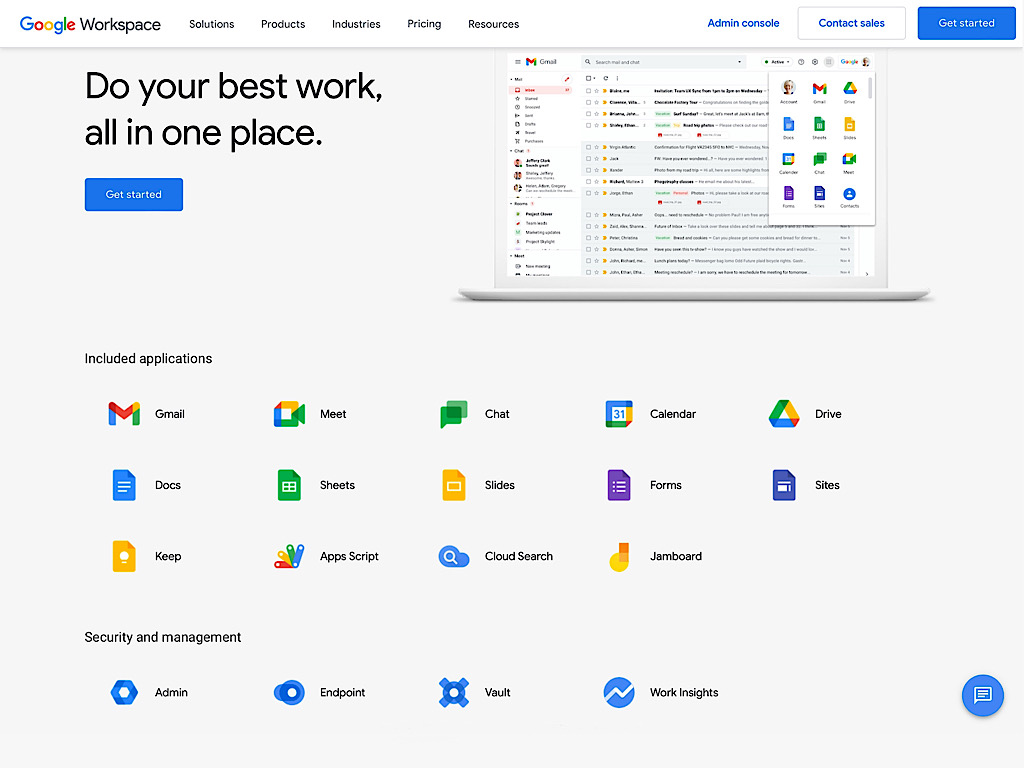
You can use file sharing, work on and store files in real-time here and leave actionable feedback, but you must move them manually to your social media management system after.
If you work on longer, lengthy documents, Google Workspace will pass with flying colors.
It may be useful for e.g. working on social-related templates, such as:
Since Google Workspace does not have API connections with social media platforms, it won’t be effective as a social media scheduling tool, though.
You can store your resources and search through your files with Filecamp, a digital asset management software solution.
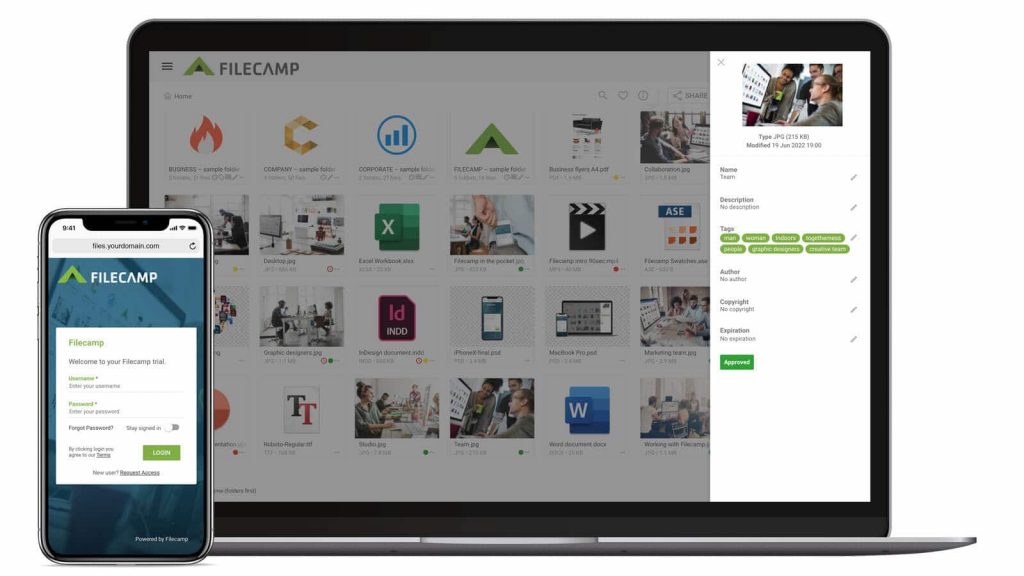
Your social media assets (like social media images, social listening data, social media mentions, or video calls transcripts) can be tagged, browsed, distributed, and labeled in Filecamp.
Filecamp is useful for archiving evergreen social media content, such as terms and conditions, brand books, and general guidelines. It’s good to have all of these accessible in one place when needed.
This project management tool has the appearance of a sticky note board. Trello lets you create multiple spaces and tasks that you can work together on. It’s intuitive to use, easy to navigate, and keeps your team up to speed (although email notifications can be quite delayed).
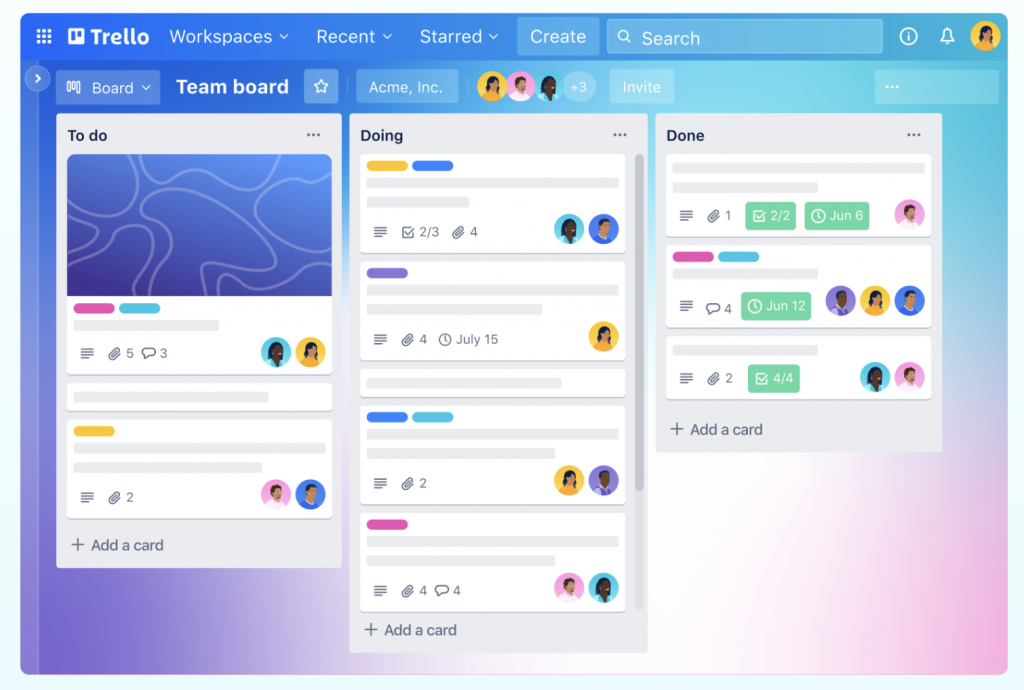
The downside is that it is not suitable for all forms of social media collaboration.
It can be used to plan marketing activities, including social media efforts, but it won’t schedule posts, generate reports
You can use Trello to brainstorm your social media campaigns, but the actual implementation has to be done through a social media management tool.
Marketing teams around the world use Notion extensively for their marketing activities. Hats off – it’s a powerful collaboration tool for building knowledge bases. It works great with other social media collaboration tools, too.
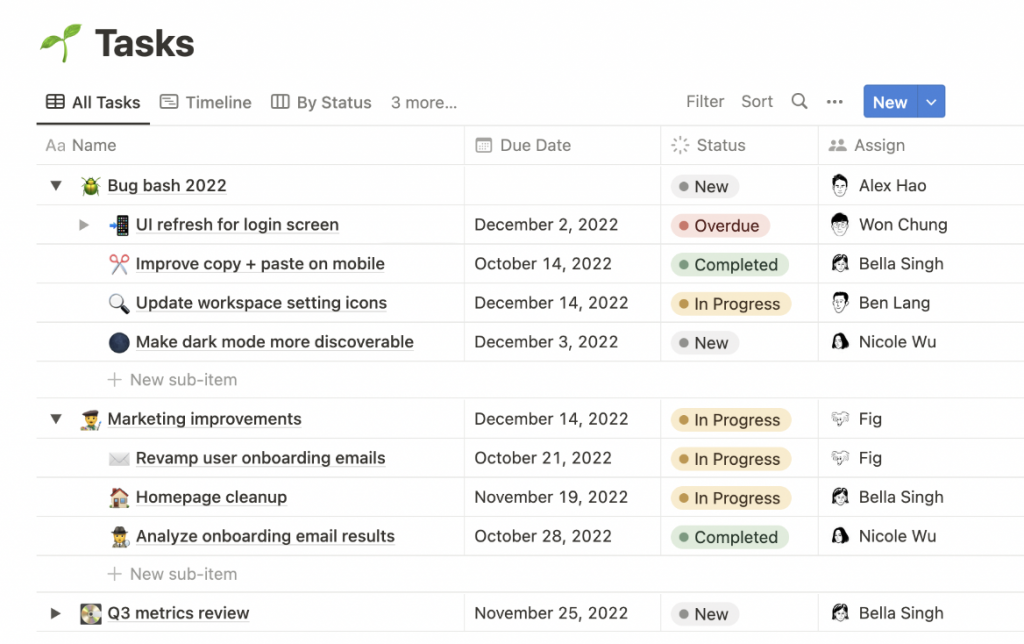
With it, all of the information you have about your clients or projects can be structured into a comprehensive social media database for your social media management team.
Notion can be of great help when embedding your social media efforts into a bigger campaign and seeing its place in the whole strategy. With such a collaboration tool as Notion, passwords can be stored securely, content creation campaign goals can be set, and ideas can be shared. And you can even assign tasks, if needed!
Miro’s web whiteboard allows you to plan social media projects from any angle and collaborate seamlessly with your team.
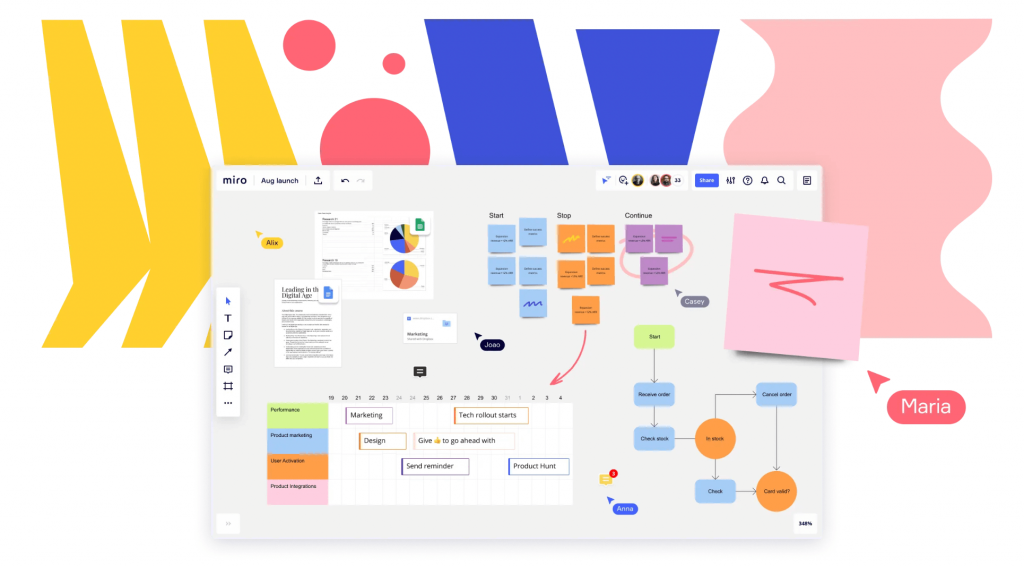
It is particularly useful for working on creative social media initiatives, as it enables team collaboration on key visuals, marketing materials, and other ideas.
With Miro, you can develop a new design direction for your social media content and then incorporate it with other social media collaboration tools.
You can use a free plan of Miro to make sure your marketing team is on the same page – but then, all the conclusions you drew, have to be implemented via other social media collaboration tools.
Canva is a graphic design tool that empowers your social media management team to create stunning visual assets with ease.

With its intuitive collaboration features, team members can work seamlessly on content curation for different social media channels.
While the platform offers social media scheduling, it lacks reporting features and advanced options known from other social media collaboration tools.
Stiil, it has content creation features that make it a must-have for any social media manager or a graphic designer focused on executing a robust social media strategy. With Canva, you can store and edit media files, use a stock photo library, or create mockups for your social media posts.
Free version is available. It might be beneficial for you to upgrade from the free plan to access features like Magic Edit or Magic Resizer.
Monday.com is a versatile CRM platform that also serves as an essential hub for social media collaboration tools.
Designed to streamline workflow, Monday.com allows each team member to engage in real-time communication and project management.
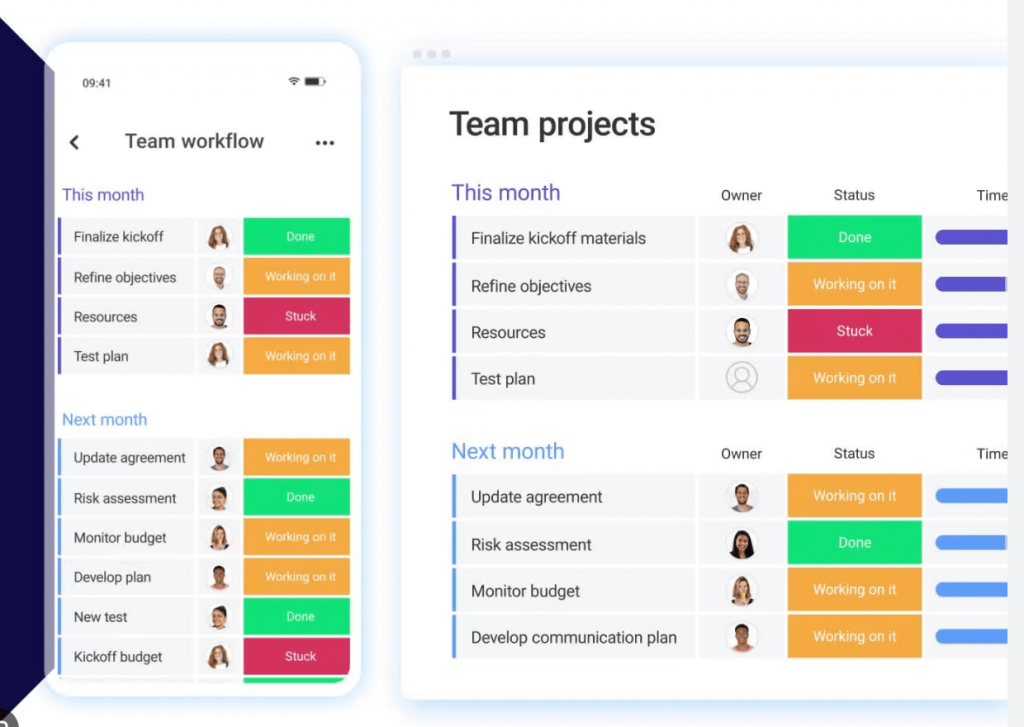
The platform offers a comprehensive suite of social media collaboration tools, including advanced collaborative tools that facilitate seamless interaction across different teams, and integration with other apps (for example, Google Drive).
For those interested in similar tools with upgraded features, you can always research monday.com alternatives. It can be helpful for planning an overview tone of voice for social media channels, replacing Microsoft Teams when it comes to collaboration, and making planning easier for each team member.
Many consider Airtable to be like Google Drive on caffeine, and quite rightly so.
You can create interactive spreadsheets with tags, mentions, and labels using this tool.

In this way, your social media team can produce effective marketing sheets, social media campaigns trackers, social media strategy templates, calendars with social media posts, or databases.
But even with integrations or triggers, they are still only primarily spreadsheets at the end of the day.
There is some collaboration support in Airtable, but not to the level of creating post-requirement checklists, sending content for internal or external approval, or scheduling across social media channels.
Free version is available. Plan prices begin at $20 per month per seat.
Zapier is a service that enables you to automate seemingly unrelated applications by creating connections between them. Examples? With a Zap (integration), an image that is shared with you on Microsoft Teams can automatically be uploaded to Google Drive.
You can automate quite a few tasks using Zapier.

With more than 3,000 app connections, teams are able to facilitate running social media marketing campaigns, visual assets management, and database creation.
Ayanza is an AI project management tool that focuses on teamwork and optimizing workflows.

It enables teams to tap into a large shared knowledge base with integrated tasks, manage workloads, assess performance, assign tasks, and utilize a social media-like newsfeed feature where social media teams can feel at home.
Ayanza is also a reliable AI time management app that lets you improve performance and collaboration. Its customizable dashboards allow managers to divide teams into groups to overview their performance and help teams communicate among themselves within their group.
It simplifies task editing and workflows with task timers that the AI uses to provide suggestions, analyze insights, and summarize key requirements. This allows teams to be more productive and helps them prioritize their tasks.
Here is a brief explanation of WHY successful social media collaboration can be a lifesaver for social media marketers, social media teams, and agencies:
Social media collaboration consists of a set of collaboration tools and processes.
Organizing these assets can be a long and arduous task, but it’ll be worth the investment of time once done. With the right social media collaboration features, social media managers can work more effectively and get less frustrated. This will help them deliver not only more, but also better.
Communication can be messy, based on misunderstandings, and may involve personal interests. With social media collaboration tools, marketing teams aim for the same goal within the framework of procedures, roles, and tasks.
Although mistakes can still happen, they are easier to eliminate or narrow down early on. To ensure everyone is on the same page, seamless collaboration is essential.
When social media collaboration rules are in place, everyone knows exactly what they are doing and what their role is in the social jungle.
Distributing, delegating, and completing tasks while also being held accountable and taking responsibility if necessary are all aligned.
Even back in 2018, one of the highest employee turnover rates was that of a marketing specialist, at 19.8%. Why are we mentioning it here? Well, you’ve connected the dots.
Through social media collaboration procedures, it is easier to complete your daily tasks but also to introduce new people to the process in a social team. Having such a large turnover in the industry, this will be necessary sooner or later.
You may lose your social media team, see them changing jobs, or require new people to join your marketing team as your company grows, and that’s all normal.
You are probably striving for your digital agency to grow and searching for ways to encourage potential clients to join you.
Making a great impression on them with a fully-functional collaboration process that they can be a part of is a terrific method of winning over their hearts (and budgets).
Companies often handle confidential information and various brand assets.
Social collaboration ensures sensitive information is stored and used securely only by those who are authorized to access it. Collaborative efforts require tools, and there are many that contribute to better asset management.
How to choose the right social media marketing tool for your business?
Follow our checklist to find out:
Opt for a platform with an intuitive interface that’s easy to navigate. The easier it is, the quickest it can be for the team members to get up to speed and reduce the learning curve.
The tool should be suitable to grow with your team and handle increasing workloads. This matters even if you don’t need it right now. A scalable solution will save you the hassle of migrating to a new platform as your needs evolve.
Look for options like shared dashboards, client approval features, labels, or post requirement checklists, to streamline communication. These features make it easier for team members to collaborate in real-time.
A good tool should offer robust analytics to provide valuable insights into your social performance. Data-driven insights can guide your strategy so you can optimize your social media campaigns on the spot.
Choose a tool that allows you to tailor some features according to your specific needs. Customization can make the tool more aligned with your workflow.
Be mindful of your budget when selecting a tool. A cost-effective solution that meets your essential needs is better than an expensive one with features you’ll never use.
Check if the tool can easily integrate with other software you use on a daily basis. Seamless integration reduces manual data entry and helps you optimize workflow in your social media team.
Secure access options like two-factor authentication should be included in the tool as part of compliance with data protection regulations.
Look for a tool that offers excellent customer support and training resources. A responsive support team and comprehensive training materials can make a significant difference in your user experience.
In the end, it will be your team that will use the tool every day. Try it out in your social media team, make sure you know how to use it well, and navigate easily.
The first step towards working out the perfect teamwork is raising awareness that it is needed and capable of facilitating everyday work. After that, you simply need to sort out your procedures and choose the best collaboration tools – or one tool – to help your team achieve its goals.
And while each tool mentioned can be qualified as one of social media collaboration tools, it’s Kontentino that combines the features of a social media management platform, project management software, and a communication tool.
It is therefore able to replace a few tools in your arsenal and save up to 40% on operational tasks.